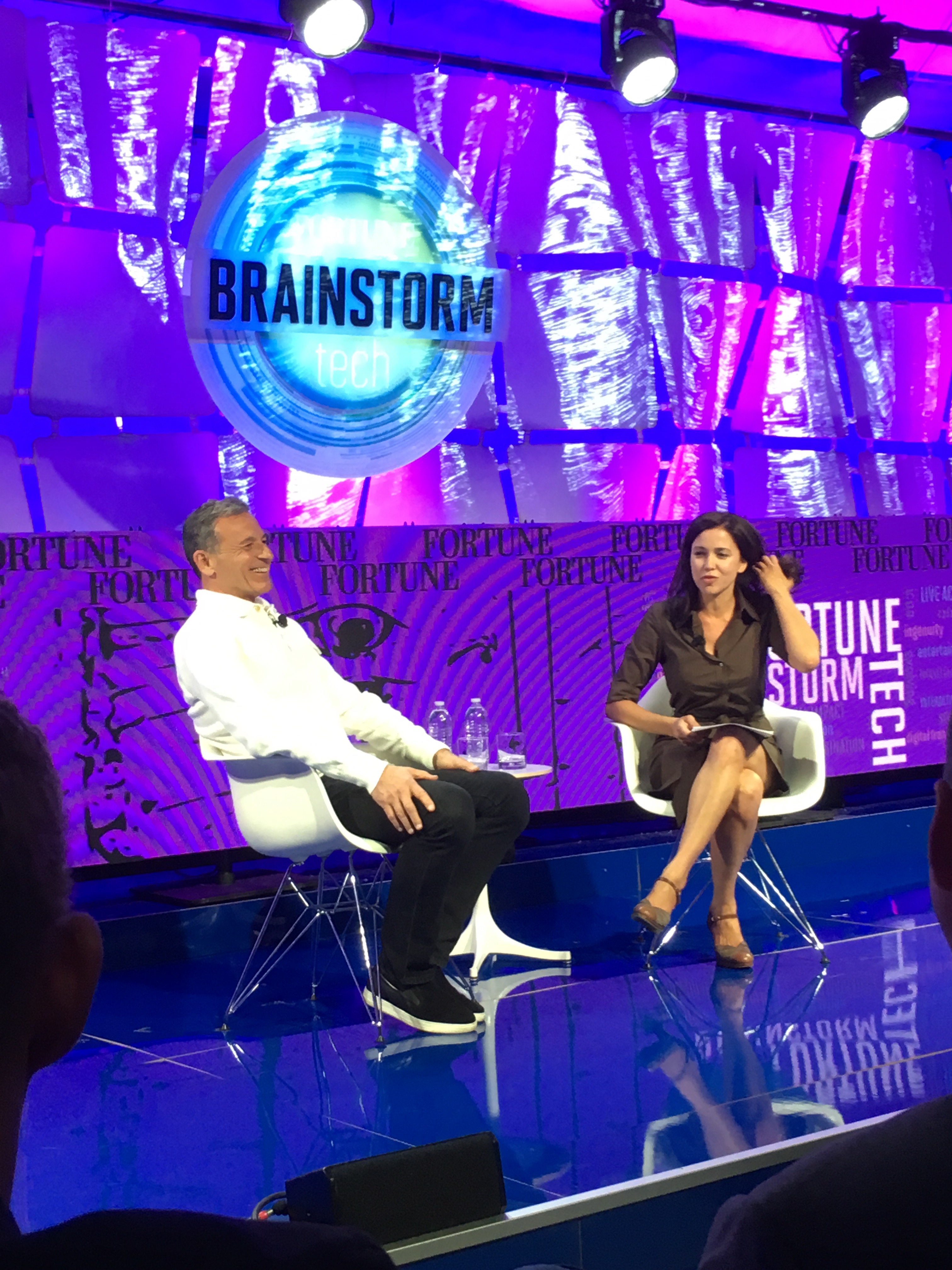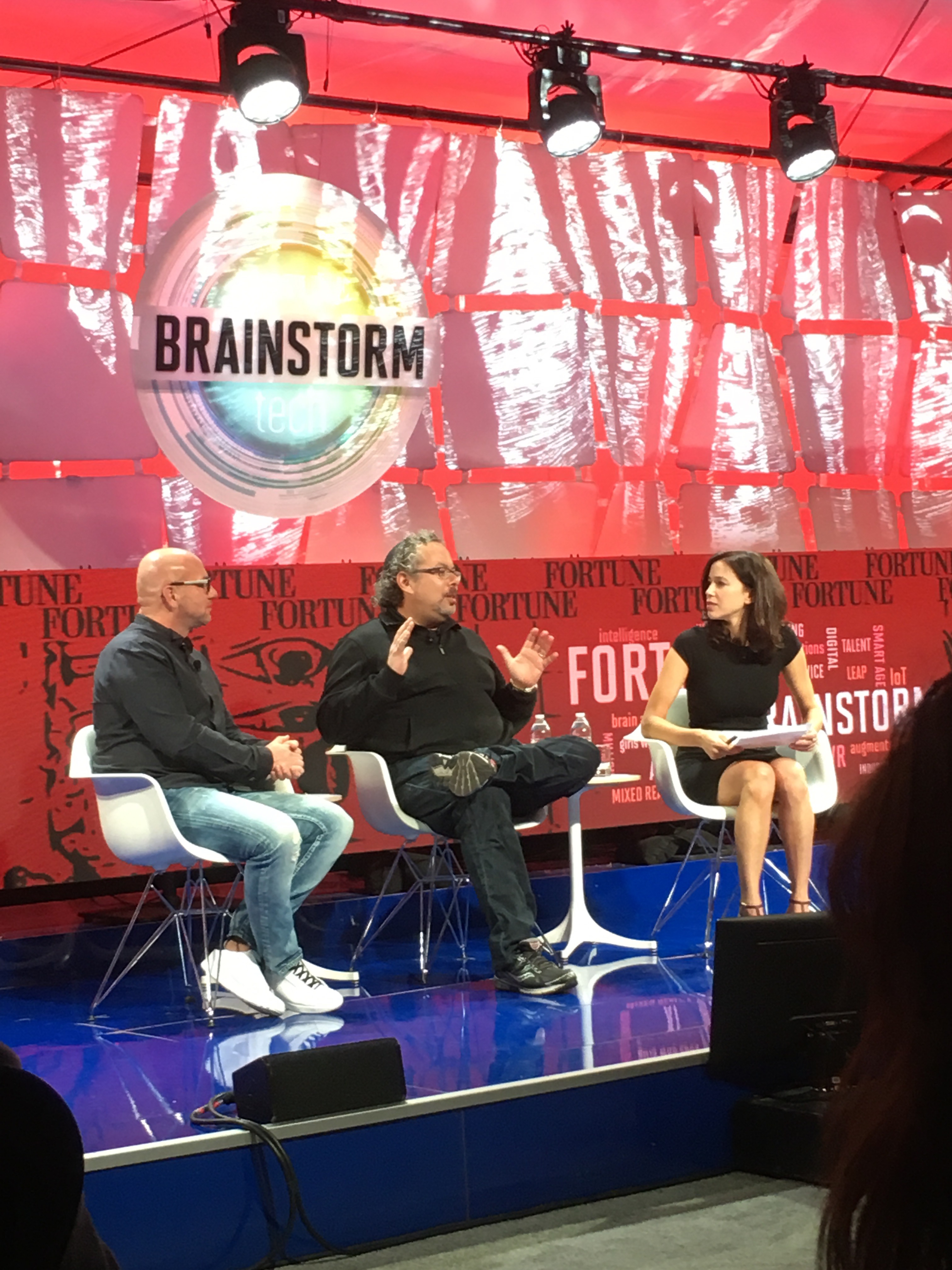One of the real benefits digital technologies deliver to business is the continual enhancement of their ability to tell a story.
That was one of my key takeaways from the recent Fortune Brainstorm Tech event held in Aspen Colorado.
The other was the need to make sure your business has a great data storage strategy, as data is going to continue to exponentially explode in magnitude.
Disney of course has long established its place as a world leader in story telling, but CEO Bob Iger spoke on how technology advances are spurring their content creators to new heights. Virtual reality and augmented reality technologies are bring characters to life in a way that has never previously been possible, which is stretching the minds of those developing the content. In turn, the story tellers’ ‘wish list’ of stories they’d like to tell spurs the technology team onto new heights as they develop products to make those dreams a reality.

Mixed reality, as described by Magic Leap CEO Rony Abovitz and CMO Brian Wallace took this a step further, speaking passionately on their view of the future where we’ll all be wearing headsets which allow a highly sophisticated style of photo-real virtual characters and objects to integrate seamlessly into our actual experiences. This isn’t just for gamers, their vision of the future sees computers become a thing of the past as we summon up whatever we need virtually and it appears in front of our eyes, allowing us to work and transact with ease. Looking for a new couch for your living room? Summons one virtually, explore it from all angles and place the order. Does your family have different views on home decor? You can stick with minimalist white, but your pink obsessed daughter can experience her life in the same home with all the walls the most vivid shade of fuschia by virtue of her headset. With over a billion (yes billion with a b) dollars raised so far to enable them to build their concept from scratch – hardware, software, the works – it’s certainly an eagerly awaited product launch. Will it change the world in the way they think it will? It’s challenging to believe, but if anyone had told us of the transformative impact of the iPhone in the mid 2000’s we would have been just as sceptical. I’ll certainly be watching the space with interest.

It’s not just entertainment and gaming style businesses though whose ability to tell a story is enhanced by technology. Every business has always needed to be able to elegantly and coherently tell its story to its customers, and technology is delivering on this capability via two mechanisms. The first is the ability to easily create the story. It’s never been easier to film, photograph and edit a beautiful crafted message – what my kids can create for their homework assignments is of a far greater quality than anything Stuart and I could have generated (even if we’d been prepared to spend thousands of dollars on it) when we were first starting out in business.
The second impact though is in the way that data is delivering an ability to personalise that story and make it relevant and real in a way that has never previously been possible. Understanding what was important to customers used often to depend on initially sourcing the opinions of focus groups,then gauging the wider reaction to created content. Now with the level of data that consumers are in most instances willingly, although at times it can certainly be unwittingly, sharing with businesses it’s increasingly easy to understand exactly what is important to your customers and make sure that is what you’re delivering in the very first instance, and we saw how businesses such as Lyft, AirBNB and UNINTERRUPTED are doing just that. With instantaneous capture of reaction to experiences, the days of consumer surveys on customer experience must surely be approaching their end – although my inbox suggests there’s still a way to go on that front….
To my second major takeaway though, to allow those stories to be created all that data not only has to be captured, it needs to be stored and in a way that facilitates the creation of real and actionable insights. Data is being generated at an incredible rate – Brian Krzanich, CEO of Intel, told us our daily usage already generates 1.5GB of data, every autonomous car will add a phenomenal 40GB/min, and a single drone generating 20GB/min. The only way to keep pace with this volume of data is to utilise the cloud, which in coming years will be dominated by machines generating phenomenal amounts of information. If your business isn’t already thinking about how it’s going to capture, store and secure that data, the time to start that conversation is already well overdue.